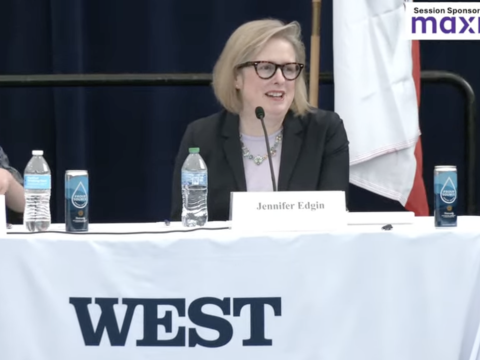AI Headlines List of Changes Seen by CIOs and CISOs
Personnel in the intelligence and cybersecurity communities are working to respond to the ongoing technological advancements and rise in adversarial threats. To increase transparency between offices within the federal government and industry partners, intelligence community and cybersecurity officials convened on Thursday to discuss the never-ending developments that take place in their realms.
As artificial intelligence (AI) capabilities are revolutionizing the battlefield, the evolving and complex space is also reshaping the intelligence community. Chief information security officers (CISOs) associated with several offices within the federal government stressed on Thursday that the demand for AI and the AI field overall has been the most notable change within their respective offices. And federal government officials are adjusting to embrace the new technology, but they warn that they must switch over in a responsible manner due to some dangers associated with AI.
“I’m using AI in my job now; that’s changed from probably two months ago,” Kathryn Knerler, intelligence community CISO at Office of the Director of National Intelligence (ODNI), said during a panel at the 2025 Intelligence & National Security Summit held in National Harbor, Maryland. “I started doing it, and then I started realizing, ‘Oh my gosh, this is such a powerful tool.’ You can feed stuff in and get stuff out, and I don’t have to think as much. That’s a dangerous thing for all of us. We need to keep our critical thinking and how we work alive, but AI for us is here. It is here in using it for what I do.”
“They want [AI] now, but really what we have to do is make sure we do it responsibly,” Ben Phelps, CISO and chief cybersecurity group at ODNI, said. “And looking at how we’re doing it across ODNI, we’re making sure that we’re leveraging what our industry partners [are doing], the work they put into it, and taking that and putting it inside the agency, but making sure we do it in a responsible way. That is what we’re looking at for AI.”
Additionally, Knerler described further that she is not the only one on her team using AI and that security groups are starting to utilize the capabilities to bolster their defense operations.
“It’s here for my teams,” Knerler said. “My team here is using it for looking at what kind of attack is this? Have we seen this before? What kinds of trends can you get from it? So, security operations are beginning to use AI in new ways. We’re also seeing it as some of the attacks that we’ve seen—we get these at home [and they] are very sophisticated, no errors.”
“So, these attacks are increasing as we speak,” Knerler added. “So, on that side of things, we need to do the same. So, we’re looking at how can we effect more dynamic defenses? How can we change what we’re doing?”
Meanwhile, Marty Nachman, chief information officer, intelligence at the FBI, says that leaders are changing the way that they look at technology and data solutions. Additionally, they are striving to be more responsive to their users and customers, according to Nachman.
The 2025 Intelligence & National Security Summit is organized by AFCEA International and INSA. SIGNAL Media is the official media of AFCEA International.



Comments